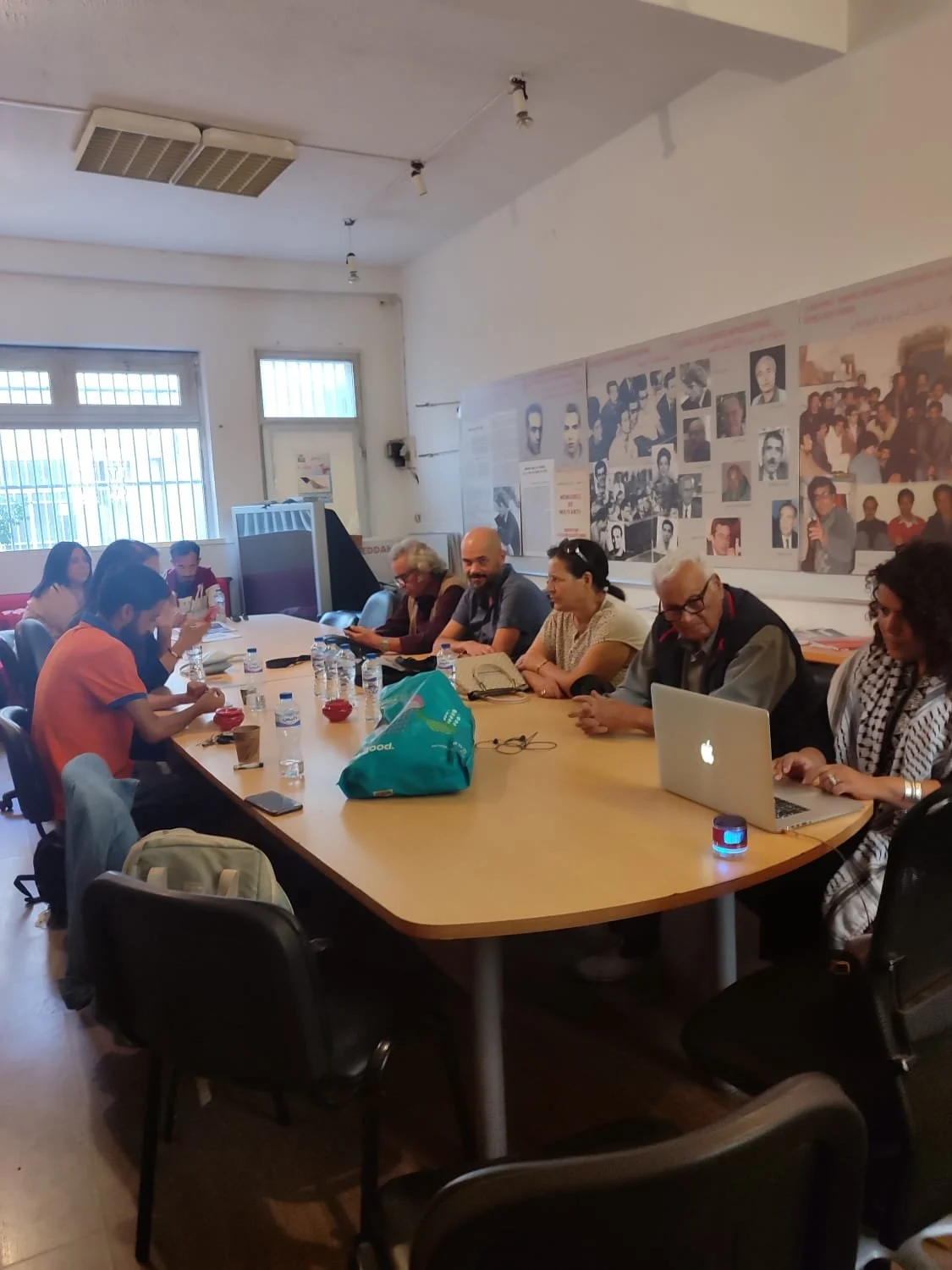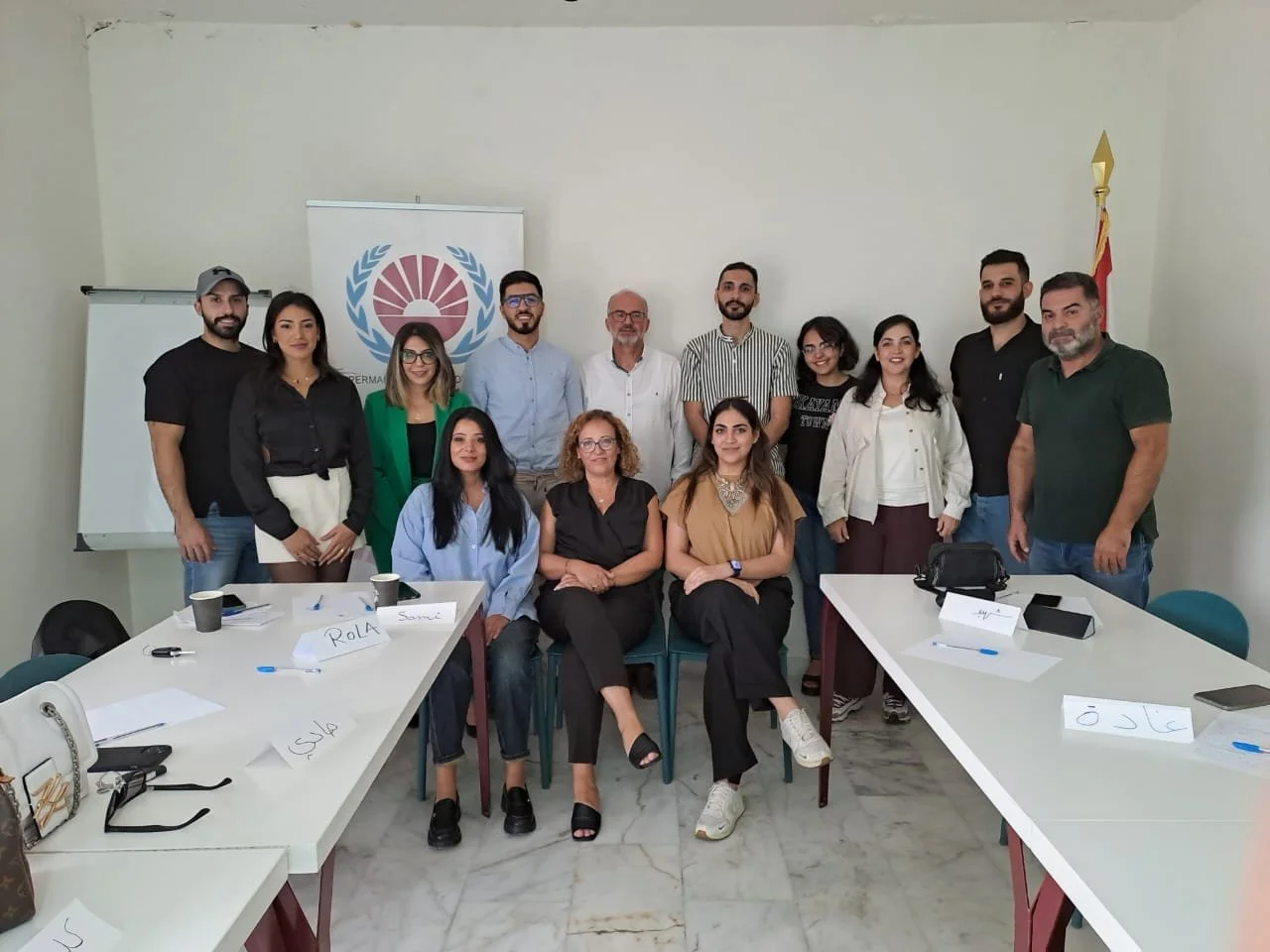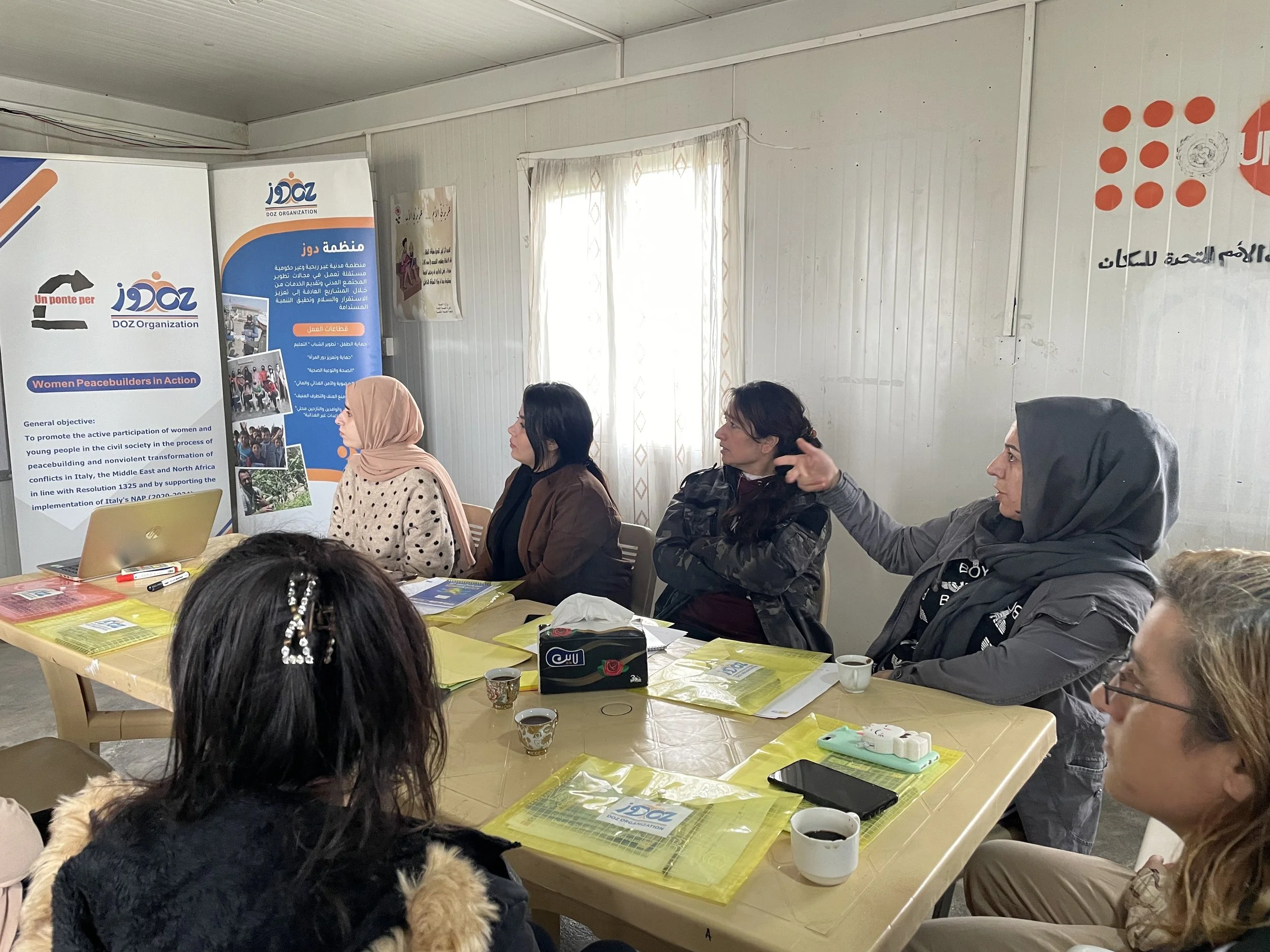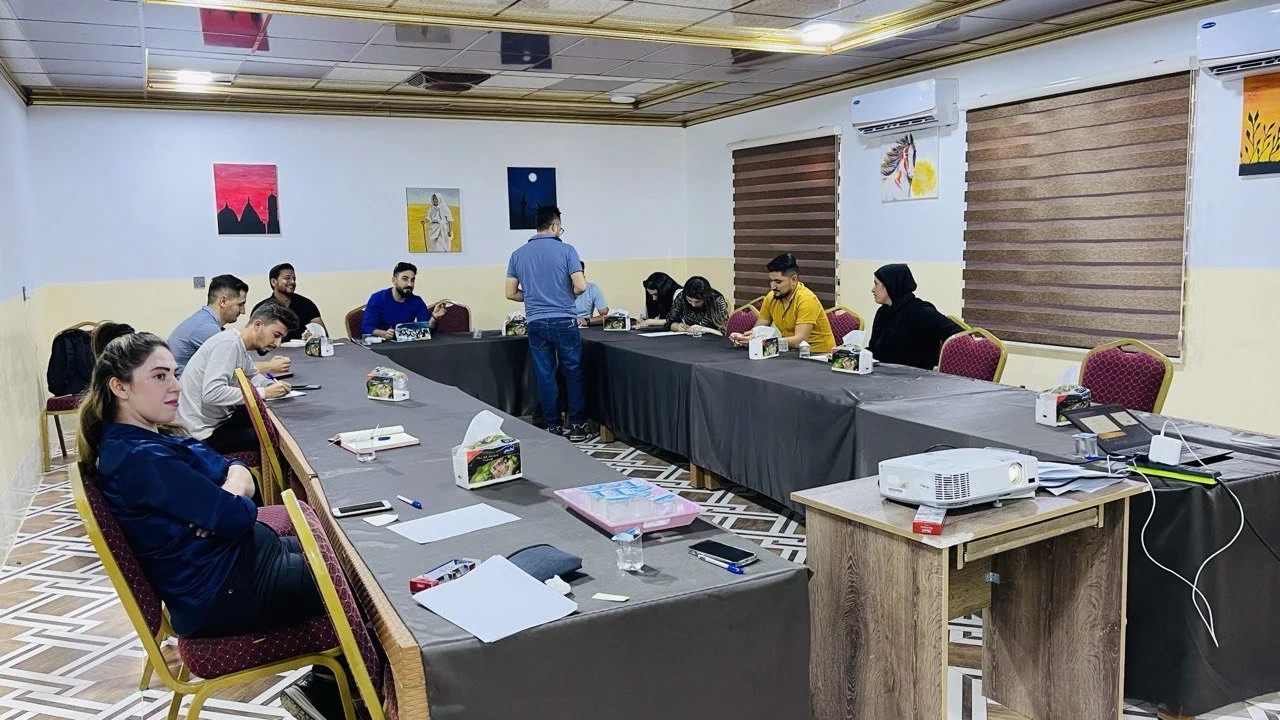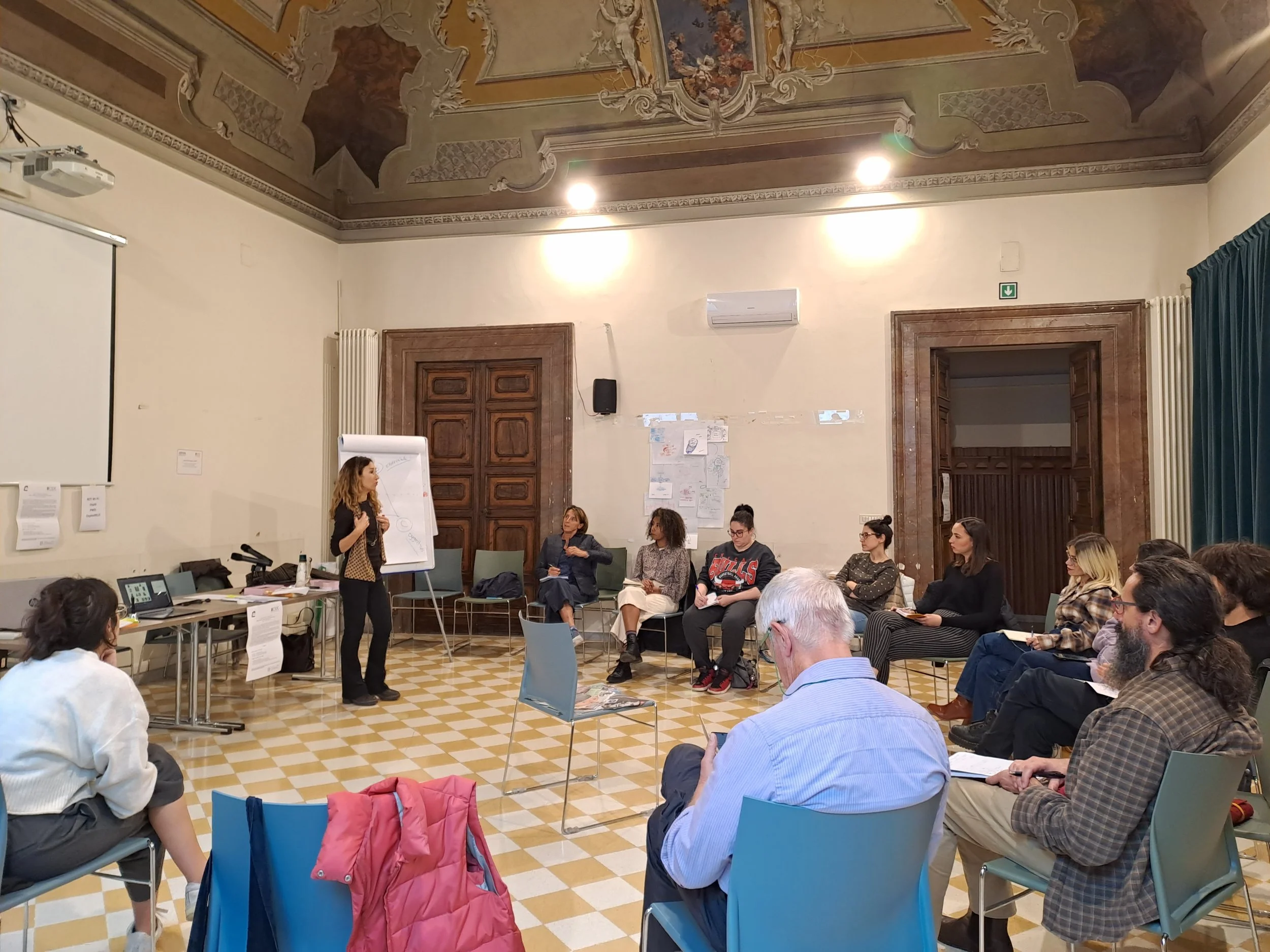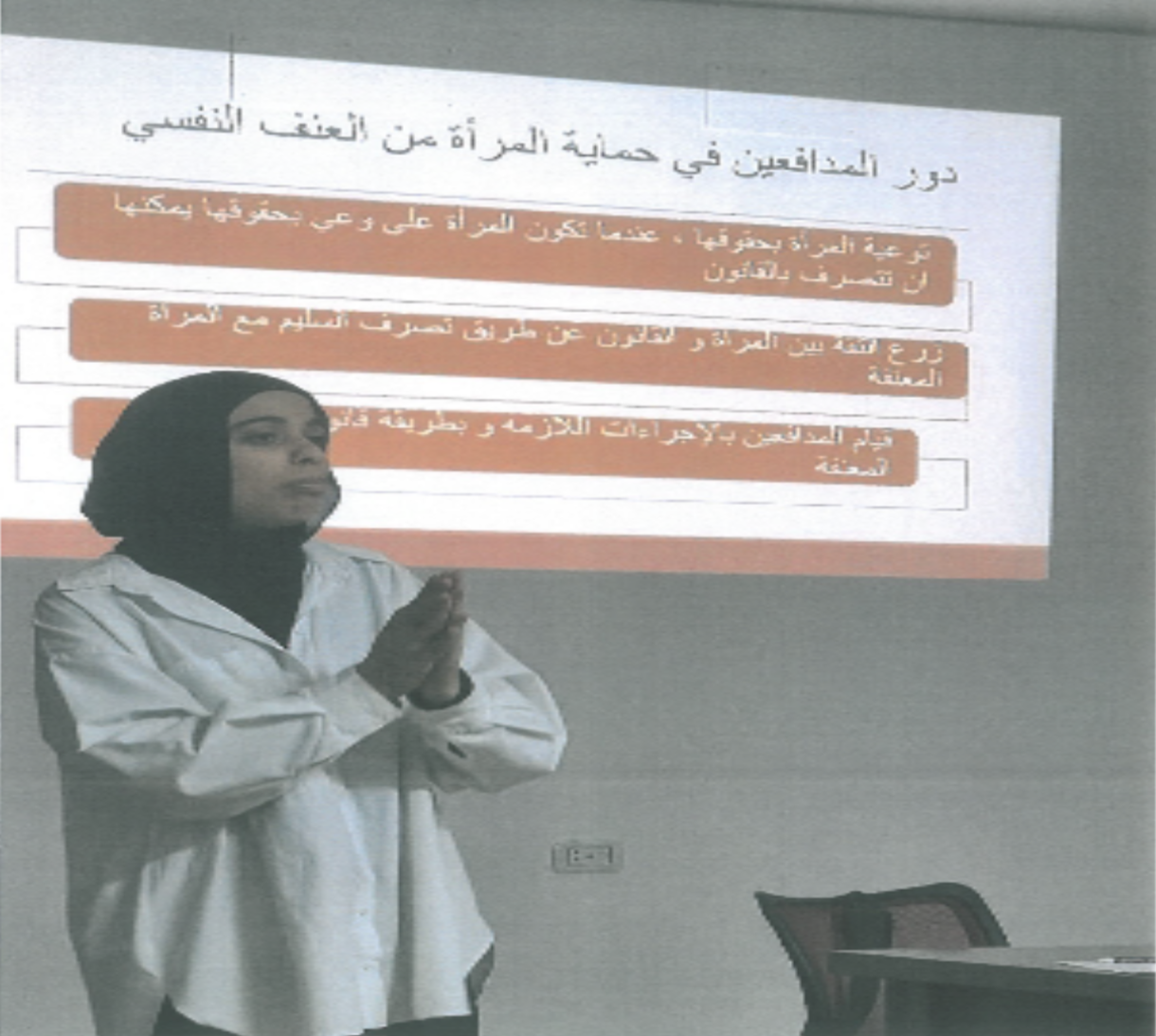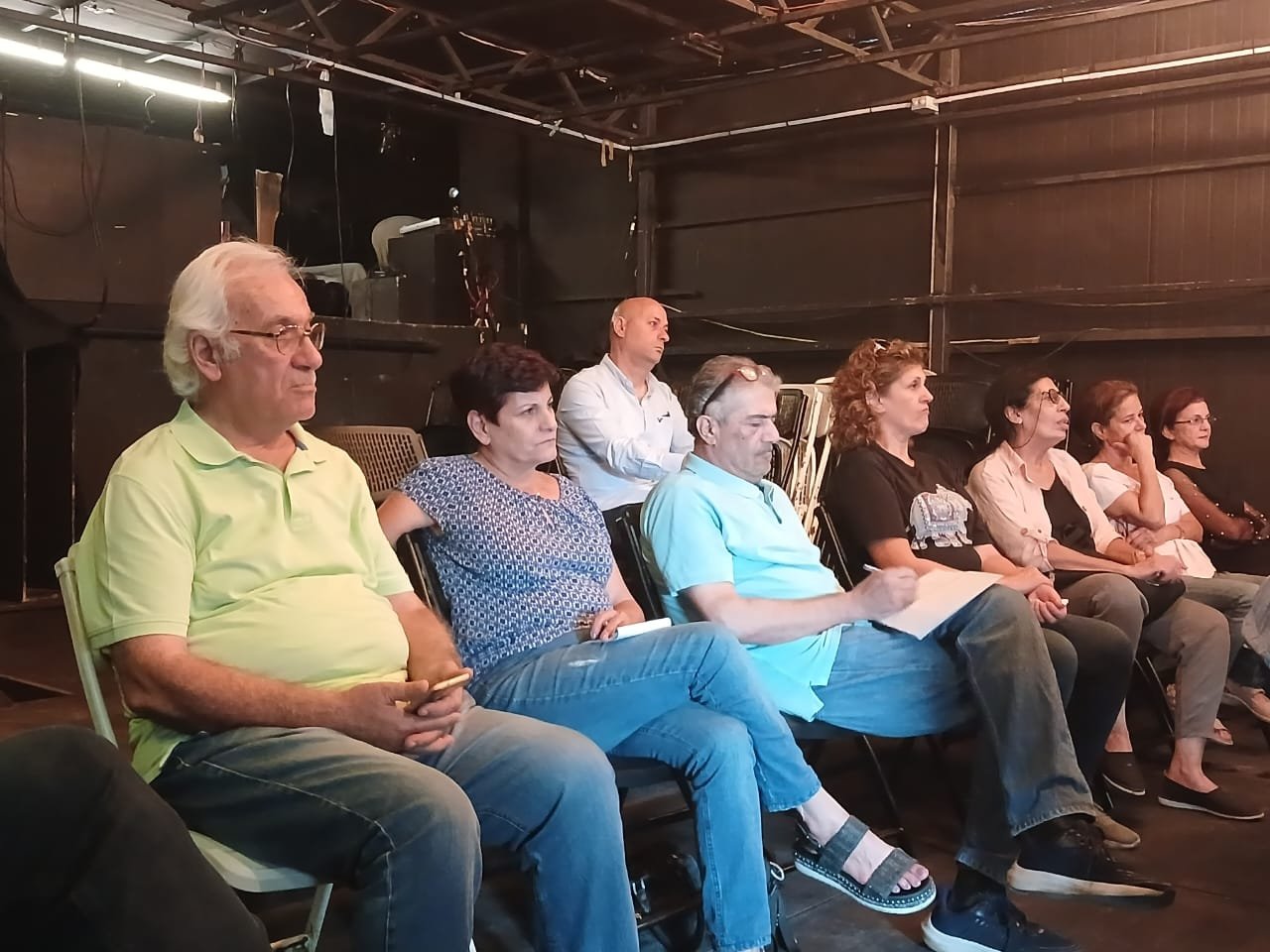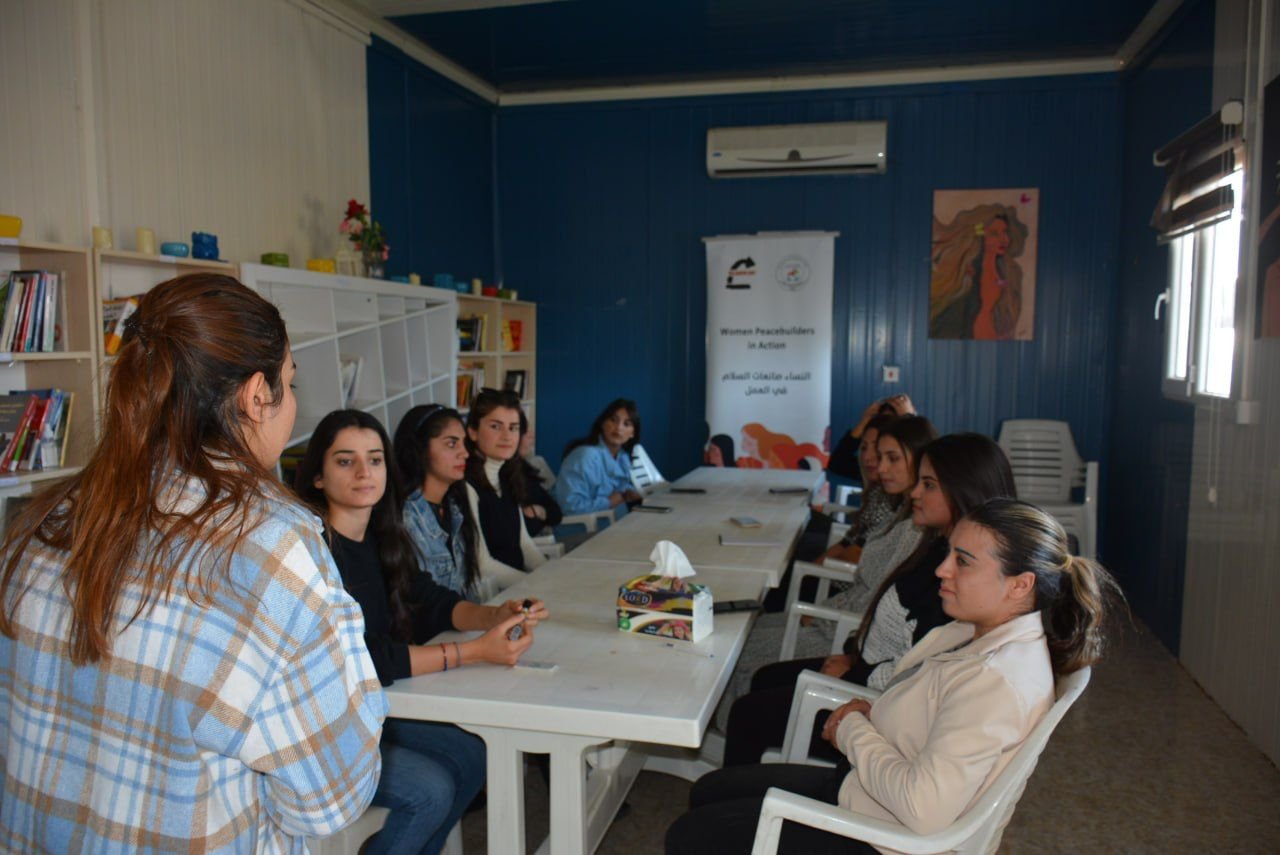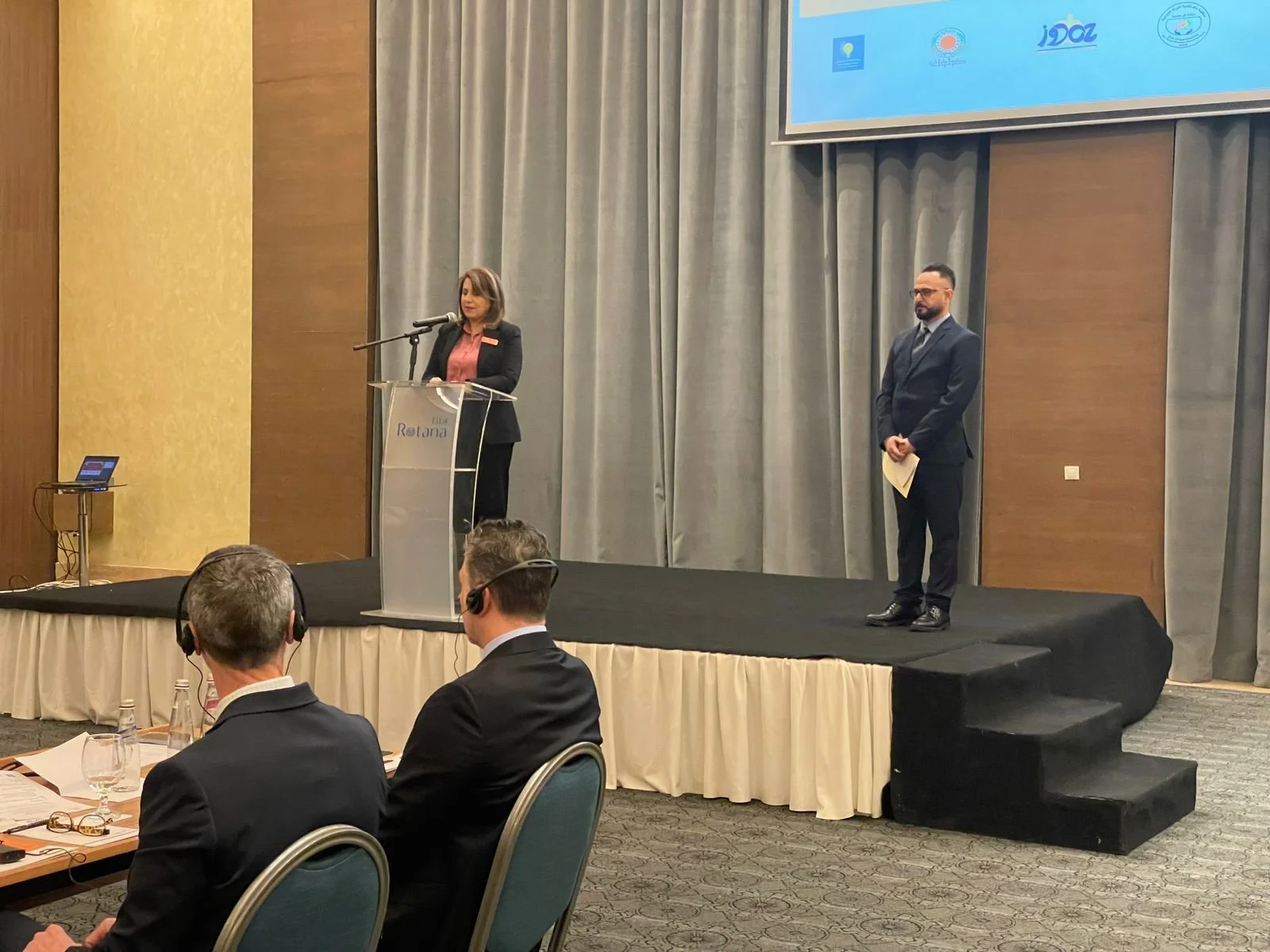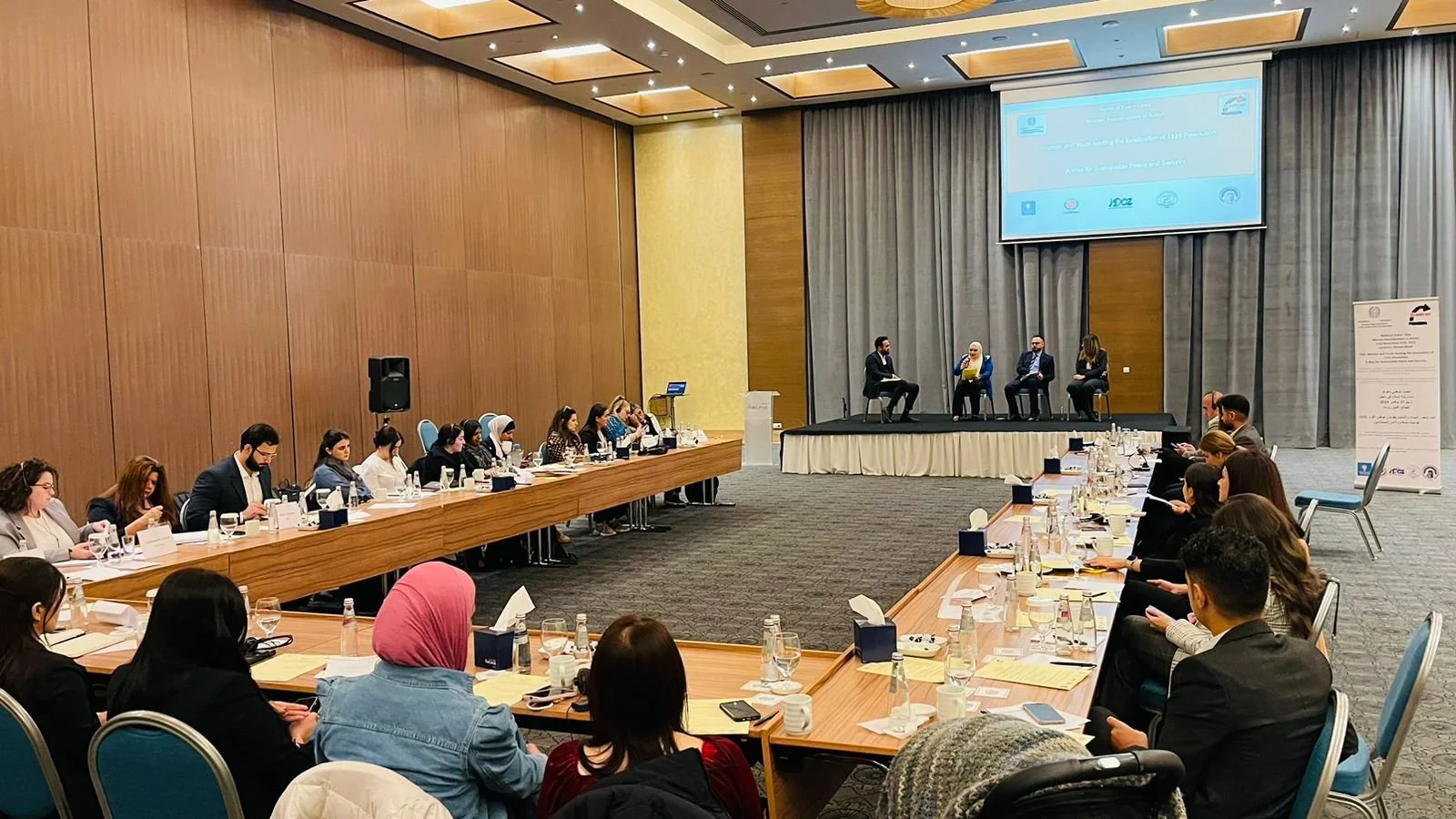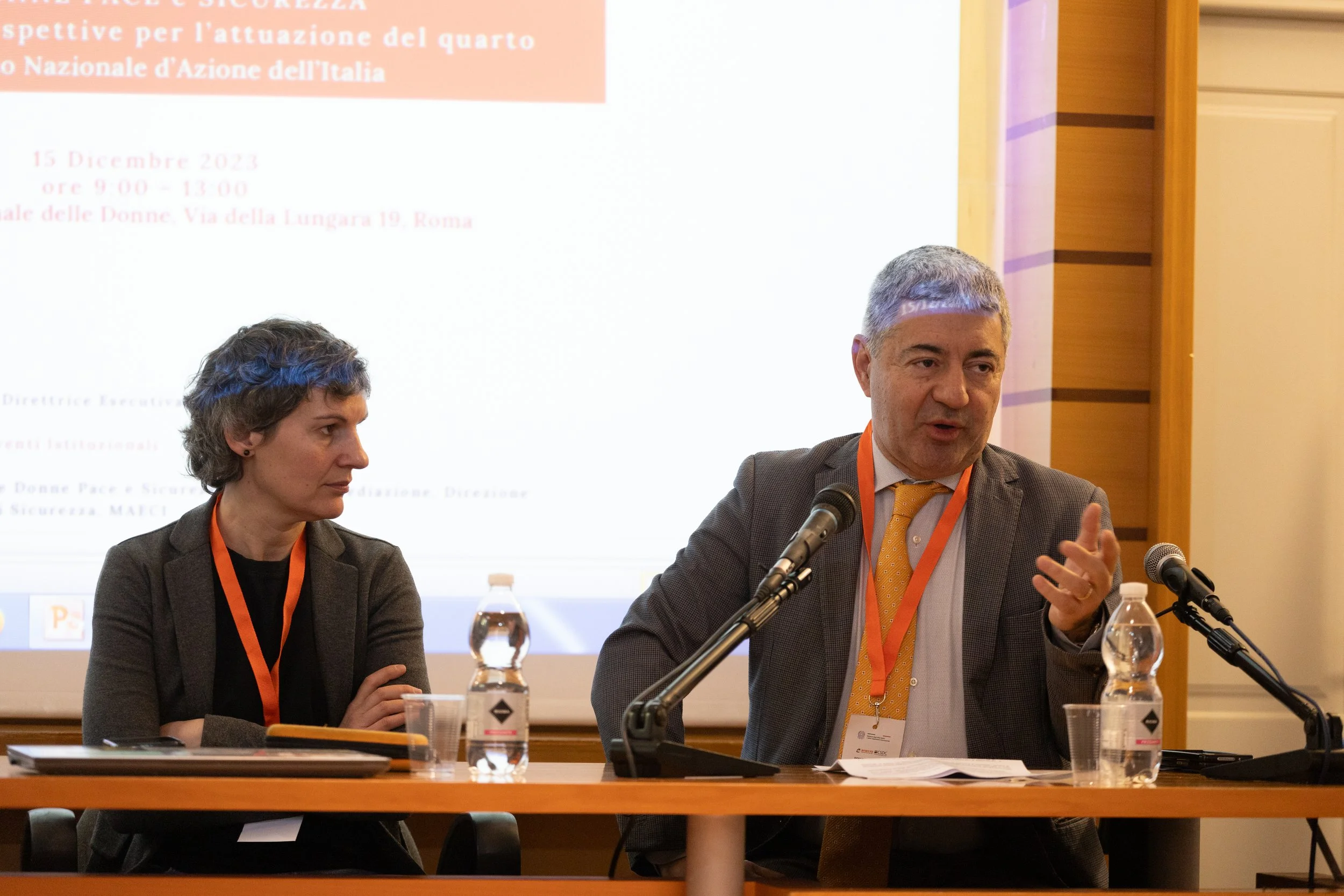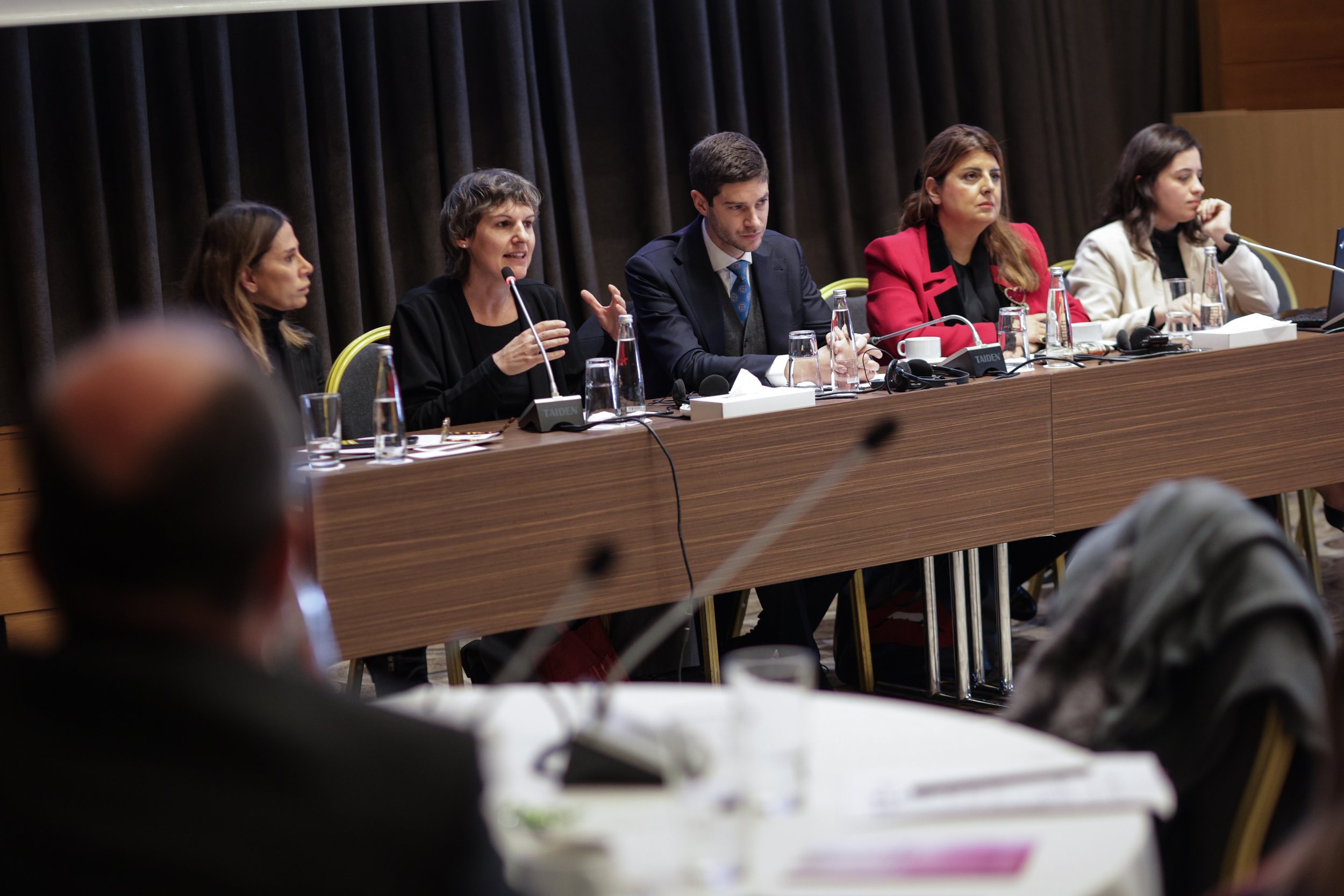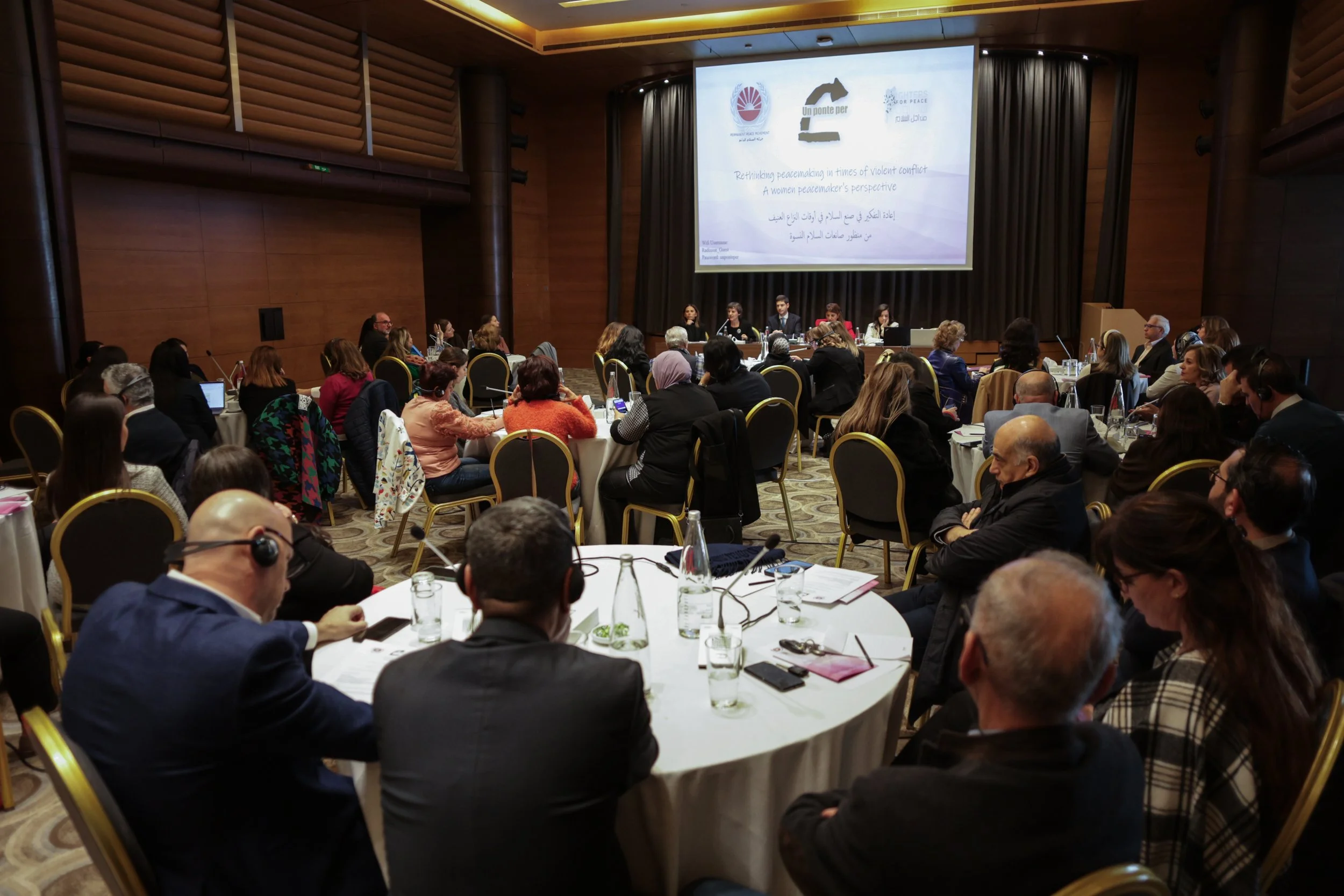
WHAT IS A WOMEN, PEACE AND SECURITY PROJECT?
Over the years Un Ponte Per, thanks to the determining partnership of various civil society organizations, successfully implemented four different projects, named respectively Engendering Peace, Women Challenging War, Women Waving Peace and Women Peacebuilders in Action. All these projects were developed inside the framework of the WPS agenda, with a particular focus on the role of peacebuilding actors in both war-thorn and post-conflict countries: in this direction, one of the main goals was to boost and cultivate an intergenerational dialogue that, stretching from Italy to the Middle East, could promote the relevance of women and youths as essential resources for the creation of sustainable peace.
Moreover, the projects also had the specific aim of supporting further collaborations between the partners, as well as to foster the sharing of knowledge, narratives and good practices within the civil society communities of the five countries at large: in doing so, we hope to maximize the impact of the Italian NAP implementation, both at the national and international level.
WOMEN PEACEBUILDERS IN ACTION
2023-2024
The last of the above-mentioned experiences, named Women Peacebuilders in Action, was funded by the Italian Ministry of Foreign affairs and International Cooperation (MAECI) within the framework of the fourth Italian Women, Peace and Security National Action Plan (NAP). Concluded in January 2024, the project was implemented by Un Ponte Per in partnership with Centro Studi Difesa Civile (CSDC), Youth Bridge Development Organization, Permanent Peace Movement, Dak - Yezidi Women for Development Organization, Women International League for Peace and Freedom (WILPF) - Lebanese section, Libyan Legal Aid Organization, Fighters for Peace, Association Lina Ben Mhenni and DOZ.
The general objective was to contribute to the development of policies and projects that, counting both on women and youths as active promotors of positive change, could lead to the empowerment of local civil societies and, thus, increase the territorialization and ownership of UNSCR 1325’s principles. The overall strategy counted on a number of different initiatives, fruit of the experience matured in years of activity in the field and shaped to be adaptable to every specific context.
-

1. Capacity-building and network-building laboratories
A week-long training workshop was organized in Tunis, seeing the active participation of different members of the organizations involved in the project coming from Italy, Iraq, Lebanon, Tunisia and Libya. Each civil society organization has subsequently set up training workshops for its staff and/or other local CSOs to diffuse the newly acquired skills and expertise, counting on the common curriculum elaborated in Tunisi as a strategical point of reference.
-

2. Micro-funding System for the realization of targeted activities
The funds, directed to local committees and peace actors’ aggregation in different countries, served to ensure autonomy of intervention in different contexts, while also supporting partners in the formulation of effective and strategic projects. Based on the previous projects’ experience, the micro-funding scheme proved to be the best tool to ensure the implementation of activities that are modelled on each specific context, granting high degrees of sustainability and adaptability.
-

3. Information and awareness-raising events on UNSCR 1325 and 2250
A total of 4 different national events were organized in Iraq, Italy Tunisia and Lebanon. Apart from their inherent informative and awareness-spreading nature, the four events represented vital occasions to show the effective operative possibility of the established network of collaboration: indeed, they worked as important opportunities to create contacts and enlarge the cooperation platform itself to other realities, creating solid links and affinity ties in each national context.
1. Capacity-building and
network-building laboratories
The workshop, designed to be in presence and with a residential character, was aimed at two advanced participants and/or representatives of each civil society partner organization, with a preference for individuals already involved in activities related to peacebuilding, conflict prevention and reintegration of ex-combatants.
The workshop’s main themes included:
Agenda Women Peace and Security, theory and examples of implementation
Youth Agenda Peace and Security, theory and examples of implementation
Gender, violent extremism, new masculinity
Women, Peace and Security and Mediation
Peaceful mediation for conflict resolution
Restorative justice
Hate Speech and freedom of expression
Tunis, 25 July - 31 July 2023
OBJECTIVES:
Involvement of 10 civil society organizations in the project.
Formation of their personnel on the pillars of the DPS and
GPS agendas.Recognition of their capacity for action on the same pillars.
Active participation in the drafting of a methodological
intervention curriculum.
1.1 Sharing skills and good practices
After the first Tunis phase reserved to the representatives of the partner organizations, a second phase of restitution and sharing of the acquired skills was organized and carried out in Italy, Iraq, Lebanon, Tunisia and Libya through the realization of specific trainings and focus groups of variable duration (2-4 days).
These workshops, apart from offering the possibility of including activists and members of local CSOs interested in the thematics, were organized in autonomy by each partner organization with the coordination of Un Ponte Per staff. The attendance rate, considering the in-depth and specialistic nature of the formation, was large and gender variegated, as shown clearly shown by the following chart.
2. Micro-funding system for the implementation of targeted activities
As a second implementation step the project envisaged the assignment of 7 micro-grants to each partner CSO. The main objective was to carry out specific activities that, modeled on locally-made need assessments drawn up for each location, could be directly realized within each intervention community: this modus operandi not only reinforced the collaboration ties established in the previous experiences, but also paved the way for future projectualities.
The activities realized were very heterogeneous as a consequence of the complexity and variegated nature of the different intervention contexts: for this reason, the guidelines and needs identified during the project evaluation and drafting phase were carefully observed during the proposal for the allocation of funds. All the interventions concentrated their action on women and young people, as identified from the outset, promoting knowledge-sharing with an empowerment-centred approach, always trying to make them protagonists of the sessions.
This emphasis was clearly underlined in each national event, where the interventions and actions taken were publicly shared to the public.
2.1 Fighters for Peace
Activity:
XGames simulations to prevent violent extremism. The sensitive issues of radicalisation and violent extremism were addressed in two separate and similar workshops held in Beddawi (Tripoli) and al-Tabbaneh (Jabal Mohsen) respectively. During the course of the workshop, the participants, of both sexes, were involved in a group game in which a hypothetical radicalisation process was simulated, replicating its symbolic and discursive dynamics; at the end of each game session, a very in-depth de-briefing was then carried out, designed to analyse the most commonly used radicalisation patterns by extremist groups, replicated ad hoc in the game. At the end of the simulation, the ex-fighters finally provided real examples of radicalisation and de-radicalisation processes drawing directly from their personal experience, leaving room for debate and open discussion with the participants using participative and as horizontal methodologies as possible.
Focus:
Deconstruction of toxic masculinity
Masculinity & violence
Critical perspective on patriarchy and its dynamics of reproduction
Violent drifts
De-radicalisation and peacebuilding
Dissemination of good practices of positive masculinity
Socialization to debate and nonviolence
2.2 Permanent Peace Movement
Activity:
Women, Peace and Security and Mediation workshop. PPM selected as targets for the activities some residents from the interior areas of Mount Lebanon governorate, particularly from the Aley district, selecting people of different ages and genders in order to achieve an approach and methodology that is as transgenerational and inclusive as possible. The activities, spread over a period of about two months, included two workshops, held on 12 September and 28 November respectively: the latter featured Fadi Abi Allam, a regionally and internationally recognised trainer in post-conflict reconciliation and non-violence practices, as well as the project's gender expert Shirine al-Jurdi, a UN Women mediator.
The two events focused on conflict resolution and mediation, their methodological and theoretical components, and their practical objectives. At the operational level, they were divided in a training workshop on the Women, Peace and Security Agenda, with a focus on Conflict Resolution and Mediation, and a second workshop, centered on practical and engaging Mediation activities.
Focus:
Agenda UNSCR 1325 - Women, Peace and Security
Notion of Mediation within the Conflict Resolution Framework
Role of Women in Conflict Mediation
Reconciliation Processes
2.3 DAK Organization
Activities:
Mountain hiking activity in Sina, near Sharya (Dohuk Governorate). The objective of this activity, held on 22 November 2023, was to engage young men and women in discussions on non-violence and non-violent communication, all in a safe and comfortable environment. The group of young people were taken to the Karajal shrine on Mount Sina, an ancient village near Sharya, and the awareness-raising session began only once they had reached their destination. The activity was structured with a methodology that did not take the form of a face-to-face lesson: on the contrary, the approach adopted involved the active participation of the group as well as interaction between them and the trainers.
Workshop on Mediation, Negotiation and Conflict Resolution. Held on 6 November 2023 at the DAK Organisation centre in Duhok, the activity aimed to provide participants with the skills and knowledge needed to effectively manage conflicts and achieve conflict resolution in different contexts. The participants composed a heterogeneous group that included both members of the host community and IDPs, who shared an interest in non-violent conflict resolution strategies and a desire to improve their skills and competences on the topic.
Focus:
Resolution 1325 and Iraq's second National Action Plan (NAP)
Networking between Iraqi Civil Society Organizations
Nonviolent Communication
Mediation, negotiation and conflict resolution
2.4 Association Lina Ben Mhenni
Activities:
Managing Conflict and Empowering Young Women: Peaceful Schools Initiative. The laboratory focused on activities aimed at empowering young women within a high school context. In the initial phase three group discussions were facilitated focusing on school services with respect to women's needs, and then on the topic of violence perpetrated by male colleagues, in and out of school. The second part of the session involved negotiations with staff to negotiate immediate measures in response to certain requests, such as privacy issues in the girls' toilets and limits on clothing and make-up.
Capturing Equality and Diversity: Photography Project for Queer Persons. The workshop was aimed at providing a platform for gender self-expression and empowerment in the Tunisian context. Led by queer individuality Miles Orphic (dead-name Mariem albakouch), the workshop included a two-week training offering a photography session: Miles organized a workshop to explore photography as a means of self-expression, giving each participant the opportunity to express their personal concerns through a collection of photos. In this creative context designed to reflect on the difficulties experienced by queer individuals in Tunisia, participants then presented their differences and similarities with normative society through their photo collections.
Unveiling Truths: Reading to End Violence in Public Places. The sessions presented a compelling selection of texts written by women and club members. Focusing on the issue of violence in public spaces, the narratives recounted the lived experiences of women who, after suffering physical and psychological trauma, have found in writing a powerful means of expression, re-elaboration and healing from the trauma. The texts included a poignant exploration of difficult life stories, offering participants a platform to identify with shared experiences and, thus, free themselves from the feelings of guilt that patriarchal society often ends up placing on the victims themselves.
Focus:
Good practices of inclusive and sensitive dialogue
Gender-related problem solving
Creation of platforms for self-expression and empowerment
Recognition, inclusion and protection of LGBTQI+ rights in Tunisia
Addressing, contextualising and countering the traumas of segregation and discrimination
2.5 DOZ Organization
Activities:
Training and awareness-raising on Resolution 1325. DOZ Organisation conducted three different awareness-raising sessions, seeking to shed light on the intersections between the defence of women's rights and peace-building. Specifically in the first information session, the facilitator provided a theoretical overview of Resolution 1325, stressing its role within the framework of UN policies; the emphasis here was on recognizing the fundamental role of women in all aspects of peace and security operations. The second session, instead, focused on issues related to achieving gender equality and women's involvement in local peacekeeping decisions, with a specific focus on the challenges faced by women in refugee camps. Finally, the third session was used to foster the involvement of participants and the “localization” of the debate through the formulation of questions and the sharing of personal experiences aimed at creating a dynamic exchange of views.
Strengthening the role of women through conflict resolution training. Participants received an in-depth introduction to the concept of conflict, aimed at emphasising its pervasive nature in everyday life: specifically, the sessions delved into the 'root causes' of conflict and provided strategies to deal with them constructively. This was accompanied by sports activities and interactive games, which added a unique dimension to the training: the latter fostered team spirit and “team-building”, encouraging the development of effective communication between facilitators and participants.
Creative awareness-raising sessions for young women. The participants engaged in discussions on early marriage, a form of gender-based violence, as well as the reasons behind the widespread use of this practice in society, especially in refugee communities living in camps. The discussions also examined various local and international laws in support of women that prohibit and regulate early marriages. The last two sessions, on the other hand, explored other forms of gender-based violence, particularly physical violence within families, the topic of dialogue and the fundamental concepts of successful communication based on listening and mutual understanding; similarly, 'negative' dialogue was addressed in all its capacity to disrupt trust-building processes.
Focus:
Women, Peace and Security Agenda
Local and gender issues in a framework of positive and constructive confrontation
Problem-solving aimed at promoting social cohesion
Good coordination and networking practices
Education in dialogue, listening, privacy and non-violent interaction
2.6 Youth Bridge Organization
Activity:
Six-day training workshop. Sinjar does not currently have a structured group or network of women dedicated to addressing local women's issues and challenges; in response to this gap, the project strategically aimed to form a group of women to serve as an operational point of reference in the area. To this end, the Youth Bridge Development Organisation relied on its own dedicated staff to organise and facilitate the training workshops, divided by theme over the different days: the project relied heavily on the experience and skills gained during the internal staff training week previously held in Tunis, thanks to which the YBDO staff was able to offer the participants a dense, articulated and multi-level training program. The workshops conducted, divided into morning and afternoon sessions focusing on topics ranging from transitional justice to positive communication, negotiation and advocacy, were aimed at promoting a supportive and empowered environment capable of actively responding to the needs of the women of Sinjar. The specific focus on the aforementioned areas of interest, combined with in-depth studies on the Women, Peace and Security Agenda, aimed not only to ensure that the women trained developed specific individual capacities, but also that, in a choral and synergic perspective, the entire training process could provide the foundations for a shared and lasting project.
Focus:
Women's leadership
Negotiation and advocacy
Mediation skills
Effective communication
Women, Peace and Security agenda
2.7 Libyan Legal Aid Organization
Activities:
Information and awareness-raising session for civil society organisations. During this session, which lasted approximately four hours, participants were provided with both theoretical and practical knowledge on women's rights, protection, access to justice and obstacles to gender equality, taking care to compare international, regional and national law on the subject. More precisely, the session was divided into a first part on the face-to-face model, in order to provide a theoretical framework of some notions, and a second part of dialogue and discussion.
Discussion group. The participants were involved in a discussion around the UN Security Council resolutions on security and peacekeeping, the significant contribution that gender equality makes to civil peace processes and how these are shaped in the current Libyan context, characterized by violence and conflict between the various parties involved. Subsequently, the reasons that hinder and threaten the effective construction of a peace process were explored and discussed, especially in the light of the current political conflict, and what could be the possible means and tools through which women could be configured as an active part of this process, based on the crucial nature of their contribution in any peace process, the defense of human rights and a system that respects and promotes them, democracy and the consolidation of the rule of law.
Focus:
Comparative law on Women, Peace and Security between national and international legal frameworks
Legislative framework on the protection of women
Gender-based violence and obstacles to full and effective gender equality
Greater awareness on human rights and gender-based violence
Mechanisms and tools to protect women and their rights
Women, Peace and Security Agenda
Participation
The following chart is intended to provide an overview, divided by gender, of the overall participation in the different workshops and activities that the SCOs involved in the project organized thanks to the allocation of the micro-grants. For each organization will be shown the total number of participants in all the proposed initiatives.
3. Information and awareness-raising events on UNSCR 1325 and 2250
The third project implementation’s step was centered on the organization of one awareness-raising event in each implementing country. All of these was conceived to be led by the partner CSOs and open to the representatives of the main national and local institutions, as well as to individuals and civil society groups. The ultimate goal was the public presentation of the joint curriculum produced in Tunis, containing the recommendations developed by the network on the importance of women and young people in non-violent conflict resolution and peace-building processes.
The pragmatic realization of the four different events - held rispectively in Iraq, Italy, Tunisia and Lebanon - offered an important occasion to showcase the effective coordination capabilities of the involved realities, providing at the same time for a fruitful context to enlarge the network to other realities rooted in the territory. These events could be considered as the fruits of the concerted work and collective planning underlying the entire project: the exchange of good practices, expertise, notions and perspectives has, indeed, created a dimension of belonging and synergy capable of having a considerable impact on the ground, creating and managing events full of potential for future collaborations and concerted action.
The events not only included the presentation of the Policy Brief drafted by Un Ponte Per Civil Peace Corps volunteers on UNSCR 1325, but also resulted in a list of strategic recommendations, visible in the drop-down menu below.
-
Develop and implement mediation structures that take into account the needs, experiences and perspectives of women and marginalized groups. Training of all parties involved in mediation, the presence of women mediators and the inclusion of policies addressing discrimination and gender-based violence in mediation processes are part of this process.
-
Support the creation and strengthening of networks, coalitions and alliances of mediators and peacemakers at local, national and regional levels. These networks can be used as forums for collaboration, knowledge sharing and advocacy, amplifying women's voices in mediation efforts and pushing for their meaningful involvement in decision-making.
-
Establish mentorship programs and leadership development initiatives to support the next generation of women mediators and peacemakers. Mentorship opportunities, training courses and access to leadership roles can help create a pipeline of competent and confident women mediators.
-
Allocate funds and resources to assist women-led mediation initiatives, such as capacity-building programs, research projects and mediation trainings. This includes awarding grants, scholarships and fellowships to women peacebuilders and mediators, as well as creating funding channels specifically for women's engagement in mediation processes.
-
Establish methods to monitor progress towards gender equality (SDG5) and the implementation of the DPS agenda. This involves collecting sex-disaggregated data, conducting gender-sensitive impact assessments and periodically monitoring and reporting on the effectiveness of measures to increase women's participation in all peace processes.
-
Work with religious and traditional leaders to promote gender-sensitive interpretations of religious and cultural norms, values and practices that enable women to participate in mediation efforts and peace processes. This includes working with religious institutions, community leaders and customary justice systems to combat discriminatory ideas and attitudes that limit women's participation in mediation processes.
-
In the context of peace agreements, support the implementation of political and legal reforms that promote gender equality and women's rights.This includes promoting the implementation of UN Security Council Resolution 1325 on women, peace and security, as well as other international and regional instruments that recognise the value of women's involvement in peacebuilding, reconciliation, negotiation and mediation.
WOMEN’S ACTION FOR PEACE
2024-2025
The last of the above-mentioned experiences, named Women’s Action for Peace, was funded by the Italian Ministry of Foreign affairs and International Cooperation (MAECI) within the framework of the fifth Italian Women, Peace and Security National Action Plan (NAP). Concluded in January 2025, the project was implemented by Un Ponte Per in partnership with Centro Studi Difesa Civile (CSDC), Youth Bridge Development Organization, Permanent Peace Movement, Dak - Yezidi Women for Development Organization, Women International League for Peace and Freedom (WILPF) - Lebanese section, Libyan Legal Aid Organization, Fighters for Peace, LOUDER and Association Lina Ben Mhenni .
The general objective was to contribute to the development of policies and projects that, counting both on women and youths as active promotors of positive change, could lead to the empowerment of local civil societies and, thus, increase the territorialization and ownership of UNSCR 1325’s principles. The overall strategy counted on a number of different initiatives, fruit of the experience matured in years of activity in the field and shaped to be adaptable to every specific context.
Compared to previous projects, this Women’s Action for Peace gave ample space to the protagonism of the local organizations involved in the project, especially through two important advocacy actions: the first was developed in Brussels, where a series of meetings took place with some and some representatives of European institutions and a delegation of the project network; the second, on the other hand, materialized in the realization of an audiovisual Storytelling documentary, a tool to share the personal and collective challenges of women activists involved in peace processes in the region.



